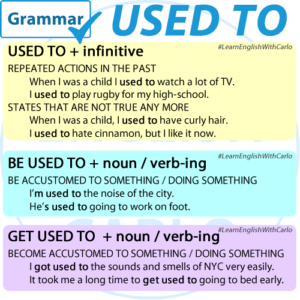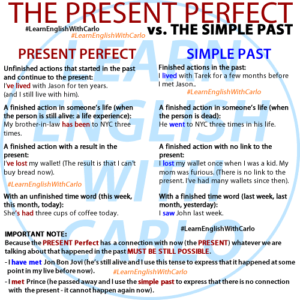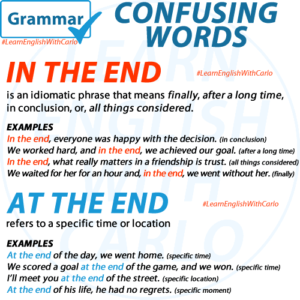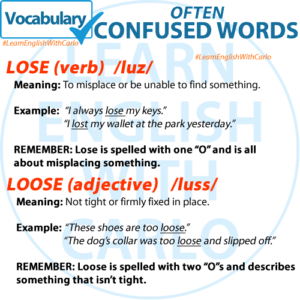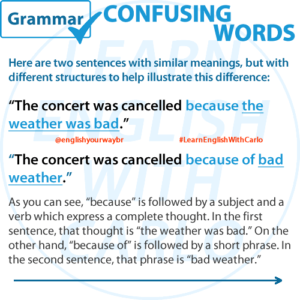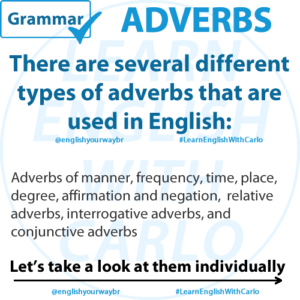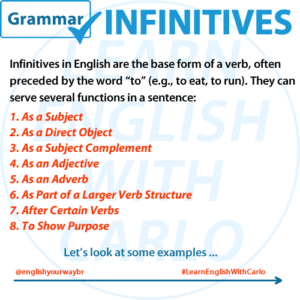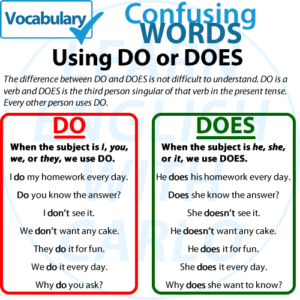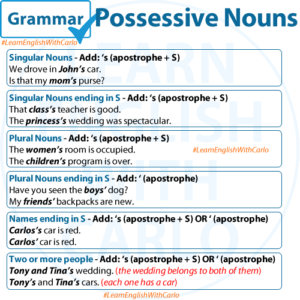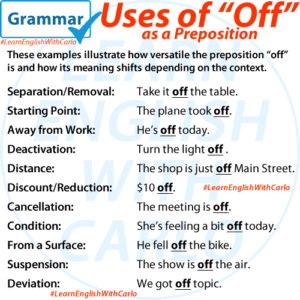In English, expressions like “used to” and “be used to” can be confusing because they look similar but have distinct meanings and uses. This guide will help you understand the difference and use them correctly. What Does “Used To” Mean? “Used to” is used to talk about habits, actions, or states that were true in …
Category: INSTAGRAM
Images I've posted to Instagram
Permanent link to this article: https://englishyourway.com.br/grammar-be-used-to/
May 25
The Present Perfect vs. The Simple Past
When learning English, one of the most challenging aspects for students is understanding the difference between the Present Perfect and the Simple Past. Both tenses refer to actions in the past, but they are used in very different ways depending on the context. Let’s break down these differences. Present Perfect: Unfinished Actions The Present Perfect …
Permanent link to this article: https://englishyourway.com.br/the-present-perfect-vs-the-simple-past/
May 24
GRAMMAR – AT THE END vs IN THE END
GRAMMAR – AT THE END vs IN THE END English learners often confuse the phrases at the end and in the end because they sound similar. However, their meanings and usage are distinct. Let’s break them down and look at some examples to help you use these phrases correctly. What Does AT THE END Mean? …
Permanent link to this article: https://englishyourway.com.br/grammar-at-the-end-vs-in-the-end/
Permanent link to this article: https://englishyourway.com.br/confusing-words-lose-vs-loose/
May 21
“Because” vs. “Because of”
What’s the difference between “because” and “because of”? In most cases, “because” is followed by a subject and a verb, and “because of” is typically followed by a single word or phrase. Here are two sentences with similar meanings, but with different structures to help illustrate this difference: “The concert was canceled because the weather …
Permanent link to this article: https://englishyourway.com.br/because-vs-because-of/
May 20
Grammar – Adverbs
Permanent link to this article: https://englishyourway.com.br/grammar-adverbs/
May 19
Mastering Infinitives in English!
Infinitives are the base form of a verb, usually preceded by “to” (e.g., to learn, to explore, to be). They’re incredibly versatile and are used in many ways to express purpose, intention, emotion, and more. In this guide, we’ll break down the main uses of infinitives in English grammar, with examples that will make it …
Permanent link to this article: https://englishyourway.com.br/infinitives-in-english/
May 18
CONFUSING WORDS – DO vs. DOES
The difference between DO and DOES is not difficult to understand.DO is a verb and DOES is the third person singular of that verb in the present tense. Every other person in the conjugation uses DO. When the subject is I, you, we, or they, we use DO. I do my homework every day.Do you …
Permanent link to this article: https://englishyourway.com.br/confusing-words-do-vs-does/
May 17
Mastering Possessive Nouns in English: A Complete Guide
Possessive nouns can seem tricky at first, but once you grasp the rules, you’ll find them easy to use. In this post, we’ll explore how to form possessive nouns in different contexts, ensuring that you can confidently show ownership in your writing. 1. Singular Nouns For most singular nouns, showing possession is straightforward. Simply add …
Permanent link to this article: https://englishyourway.com.br/mastering-possessive-nouns-in-english/
May 16
Uses of “Off” as a Preposition
The preposition “off” has many different uses in English, depending on the context. Here’s a breakdown of its main uses: 1. Separation or Removal 2. Starting Point (in Time or Space) 3. Away from Work or Duty 4. Deactivation or Disconnection 5. Distance or Separation 6. Reduced or Discounted 7. Cancellation or Suspension 8. Condition …
Permanent link to this article: https://englishyourway.com.br/uses-of-off-preposition/

